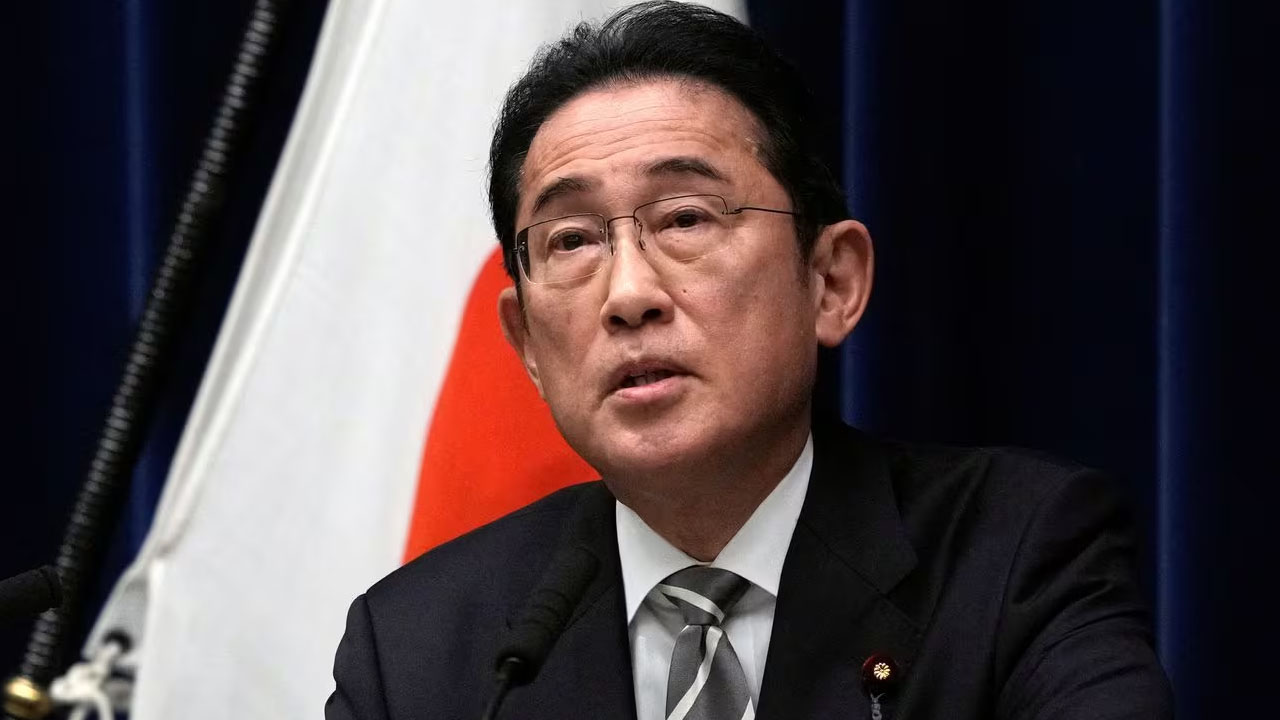Japanese Prime Minister Shuffles Cabinet Amid Corruption Scandal
The Japanese Prime Minister shuffles cabinet amid corruption scandal engulfing the ruling party. The scandal has prompted the resignations of key ministers, including close ally and government spokesman Hirokazu Matsuno, shaking the foundations of Kishida's administration.
Author:Hajra ShannonReviewer:Paula M. GrahamDec 15, 20231.3K Shares104.9K Views

The Japanese Prime Minister shuffles cabinet amid corruption scandal engulfing the ruling party.
The scandal has prompted the resignations of key ministers, including close ally and government spokesman Hirokazu Matsuno, shaking the foundations of Kishida's administration.
Resignations And Criminal Investigations
On Thursday, Yasutoshi Nishimura, the Minister of Economy and Industry, followed Matsuno in announcing his resignation.
Reports from Jiji Press and other Japanese media indicate that Internal Affairs Minister Junji Suzuki and Agriculture Minister Ichiro Miyashita are also stepping down. Additionally, five deputy ministers are expected to be dismissed.
The implicated ministers belong to the so-called "Abe faction," named after the late former Prime Minister Shinzo Abe. This faction holds considerable influence within the ruling Liberal Democratic Party (LDP).
Japanese prosecutors have initiated a criminal investigation into the faction over allegations of receiving approximately ¥500 million ($3.5 million) in fundraising proceeds that went missing from party accounts.
Kishida's Response And Government Restructuring
In response to the escalating scandal, Prime Minister Kishida announced a government revamp, marking his third cabinet reshuffle since taking office in October 2021.
The shake-up includes the replacement of key ministers associated with the Abe faction. The positions affected include Chief Cabinet Secretary, Economy and Industry Minister, Agriculture Minister, and Internal Affairs Minister.
Kishida expressed regret over the scandal's role in the escalating political mistrust and promised to take immediate action to address the issue.
“„In light of the various allegations made regarding political funds, which have shaken the public trust in politics, and the various allegations made regarding my own political funds, I have submitted my resignation.- Government spokesman Hirokazu Matsuno
“„We will tackle the various issues surrounding political funds head-on… I will make efforts like a ball of fire and lead the LDP to restore the public’s trust.- Japanese Prime Minister Fumio Kishida
Impact On Public Support And Opposition Response
Since the scandal came to light a few weeks ago, Prime Minister Kishida has witnessed a decline in public support, with approval ratings dropping to about 23 percent, the lowest since he assumed office.
The Constitutional Democratic Party of Japan (CDPJ), which led the opposition, attempted to remove Kishida from office, but it was unsuccessful.
CDPJ leader Kenta Izumi criticized the LDP and questioned their ability to select leaders free from involvement in slush funds.
“„The LDP has no self-cleansing ability. It is questionable if they can choose anyone who is not involved in slush funds.- CDPJ leader Kenta Izumi
Political Stability At Stake
Analysts warn that the ongoing scandal and cabinet reshuffle may have a lasting impact on Japan's political landscape.
The removal of ministers and party officials associated with the influential Abe faction could reshape power dynamics within the LDP. However, it also poses the risk of triggering a power struggle.
Kishida, who does not face an election until October 2025, aims to balance internal party dynamics. The scandal's effects on his popularity could influence the timing and outcome of the Liberal Democratic Party's leadership vote scheduled for September.
Investigations And Legal Complexities
Japanese prosecutors are expected to initiate searches of lawmakers' offices for evidence in the coming week. Other LDP factions, including one that Kishida previously led, may be the subject of the investigation.
The scandal revolves around allegations of systematic failure to report political funding, potentially violating campaign and election laws.
While collecting proceeds from party events and paying kickbacks to lawmakers are not illegal if recorded appropriately under the political fund's law, the scandal highlights the challenges of enforcing accountability and transparency in political financing.
Final Words
As Prime Minister Kishida grapples with the fallout, the developments underscore the delicate balance between political stability, public trust, and the complexities of legal proceedings in Japan's political landscape.

Hajra Shannon
Author

Paula M. Graham
Reviewer
Latest Articles
Popular Articles